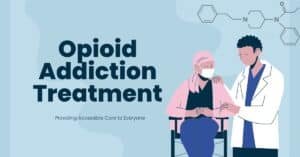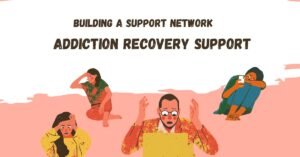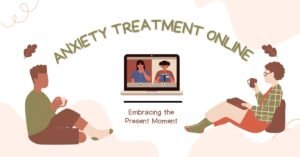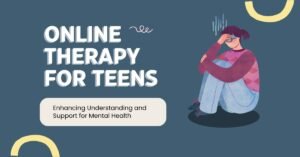Navigating the landscape of mental health services can be daunting. Whether you’re looking for individual therapy, couples counseling, or telehealth options, understanding what’s available and determining the best fit for your needs is crucial. This comprehensive guide will explore various treatment options and provide practical advice on choosing the most effective mental health care for individuals and couples.
1. Understanding Mental Health Treatment Options
Types of Therapies
- Cognitive Behavioral Therapy (CBT): This is a popular type of talk therapy that helps patients manage problems by changing the way they think and behave. It’s especially effective for depression, anxiety, and post-traumatic stress disorder (PTSD).
- Dialectical Behavior Therapy (DBT): Originally developed for borderline personality disorder, DBT has also been used successfully to treat other mental health conditions. It focuses on providing therapeutic skills in four key areas: mindfulness, emotional regulation, distress tolerance, and interpersonal effectiveness.
- Eye Movement Desensitization and Reprocessing (EMDR): EMDR is primarily used to treat PTSD. During therapy, the patient is asked to recall distressing images while the therapist directs their eye movements, with the goal of reducing the vividness and emotion associated with the memories.
Medication Management
Medication can be an essential component of treatment, especially when combined with psychotherapy. Psychiatrists typically manage medication and tailor prescriptions based on individual needs. Patients should have regular check-ins with their psychiatrist to adjust dosages or change medications depending on their progress and side effects.
Counseling vs. Psychiatry
Deciding whether to see a counselor or a psychiatrist often depends on the nature and severity of the mental health condition. Counselors can provide therapy and coping strategies but do not prescribe medication. Psychiatrists, on the other hand, can provide a diagnosis, prescribe and manage medication, and also offer therapy.
2. Choosing the Best Therapy for Mental Health
When selecting a therapy type, consider what mental health issues you are facing:
- Anxiety and Depression: CBT is highly effective as it helps individuals identify and challenge their negative thoughts and behaviors.
- Trauma: EMDR has been shown to help patients process and make sense of their traumatic experiences.
- Personality Disorders: DBT provides the tools necessary for emotional regulation and can help manage symptoms better.
Each therapy has its methodologies and benefits, so it’s essential to discuss with a mental health professional which therapy might be the best fit based on your specific conditions and needs.
3. Couples Therapy vs. Individual Counseling
Couples Therapy
Couples therapy focuses on resolving conflicts and improving relationship satisfaction using therapeutic interventions. It is not only for troubled relationships but can also be beneficial for couples looking to strengthen their partnership.
Individual Counseling
Individual therapy might be preferable for dealing with personal issues that are not directly related to the relationship but still affect it. Personal counseling can help individuals address their own mental health needs in a confidential setting.
4. Telehealth Services for Mental Health
The advent of telehealth has revolutionized access to mental health services, making it easier than ever to receive therapy from the comfort of your home. This is particularly beneficial for those in rural areas or with busy schedules.
Pros of Telehealth:
- Accessibility: Increases access to mental health services for those who live in remote areas or have mobility issues.
- Convenience: Sessions can be scheduled around personal and professional commitments.
Cons of Telehealth:
- Technology Issues: Dependence on internet connections and digital devices can sometimes hinder the therapy process.
- Personal Connection: Some may find it harder to establish a therapeutic relationship through a screen.
5. Combining Counseling and Medication
In many cases, a combination of therapy and medication yields the best results. This integrated approach can help tackle the biological and psychological components of mental health disorders simultaneously. It’s important to work closely with your healthcare provider to determine the most effective treatment plan for you or your relationship.
Conclusion
Choosing the right mental health treatment involves understanding the options available and determining the best approach based on your unique needs. Whether it’s individual therapy, couples counseling, or managing treatment through telehealth, the key is to seek help and start on the path to mental wellness. Remember, taking the first step by asking for help is a sign of strength, and it’s crucial to finding the support you need.







